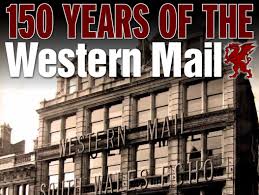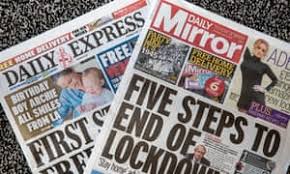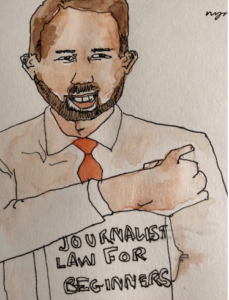- Missing in action - 12th February 2026
- Travel news again - 11th February 2026
- Ewe turn - 10th February 2026

Staff at one of Wales’ most important media groups believe their jobs are about to be axed and the writing is on the wall for paid-for newspapers in the country, it has emerged.
The UK’s largest newspaper group, Reach, which owns the Western Mail, and South Wales Echo among many other titles, as well as the WalesOnline website (all in the Media Wales stable), has just announced it plans to cut 550 staff (or around 12 per cent of its workforce).

One journalist on the publications told us: “Everyone thinks their job is now on the line and this all spells the end for the Mail and the Echo being paid-for papers”.
Simon Thomas, a rugby correspondent for the Western Mail, South Wales Echo, Wales on Sunday and WalesOnline, tweeted that he may not be seen next month.

Meanwhile in an email to staff, Reach Editor-in-Chief Lloyd Embley and group Chief Operating Officer the Editor-in-Chief of Media Wales and Editor of the Western Mail, Alan Edmunds (known as ‘The Jockey’ because of his short stature), said the “transformation” plans would have implications for “everyone in our editorial, circulation and printing teams – both regionally and nationally”.
They said the heart of this ‘transformation’ was the creation of a “single editorial division, rather than the current nationals and regionals split” with the same for circulation teams.

Across editorial and circulation departments on UK publications, staffing numbers are expected to plummet, with roles potentially put at risk in order to “conduct a fair process”.
The cutbacks are part of changes intended to deliver savings of £35 million a year at a one-off cost of £20 million.
As of 2019 Reach employed 2,598 journalists and editorial staff across 150 press brands.

Apart from the Western Mail and South Wales Echo, titles include the Daily Mirror and Daily Express, as well as the Manchester Evening News and Birmingham Mail.
Major issues surrounding the lockdown have exacerbated huge difficulties already in place for newspapers, and in the usual business-speak, Guardian Media Group (GMG) Chief Executive Officer David Pemsel, has said: “The media sector remains challenging.

“However, our reader revenues are growing well, our advertising proposition remains strong, and more people are reading us than ever before.”
In Wales, though, disastrous circulation figures have plunged even further during the lockdown.
The hit rate for the website WalesOnline, is far greater than the circulation numbers for traditional newspapers, and this was thought to provide a way forward.
But knowledge of the journalist libel laws among executives here is apparently sketchy, and the Editor Paul Rowland threatened to sue our Editor Phil Parry for an accurate satirical piece on The Eye.


In December 2016 Mr Rowland warned Mr Parry: “I am placing it (the satirical article) in the hands of our lawyers”, and used the extraordinary words “satire is no defence against libel”, when in fact it can be.
Mr Rowland also has an interesting view on what constitutes journalism.
On his website, he advised a reader anxious to break into journalism: “You might not be interested in ’19 mouth watering street food dishes and where to find them in Wales’, and you might believe it’s not something we should be writing (I wouldn’t agree, but that’s fine). That doesn’t mean it’s clickbait.”
The circulations of all local newspapers are collapsing as the internet makes serious inroads into readerships, but the situation in Wales is particularly bad.

The Western Mail for example used to be the ‘paper of record’ for Wales and even in 2013 it was selling 22,854 a day.
Last year it was selling just 10,341.
The South Wales Echo serves the largest city in Wales (Cardiff) as well as some of its main valleys, and it used to be the biggest selling newspaper produced in the country, but was overhauled by other papers several years ago.
When Mr Parry started on it in 1983 the circulation was over 80,000, and there were dozens of journalists at head office in Cardiff, as well as a host of district offices.

In the Bridgend office for example there was four reporters.
But in 2013 circulation was down to 24,261 a day and last year it was only 10,355, with the number of journalists a fraction of what they were, and after it had been overtaken as the biggest selling newspaper created in Wales.
Even before the latest job cuts were announced, it appeared that the Echo was doing something VERY wrong.
The Daily Post (a morning paper which serves North Wales), in 2019 was on 16,327.
 The future could now be even bleaker at all papers if the fears of journalists are realised after this latest news of the axe about to fall at one newspaper group.
The future could now be even bleaker at all papers if the fears of journalists are realised after this latest news of the axe about to fall at one newspaper group.









